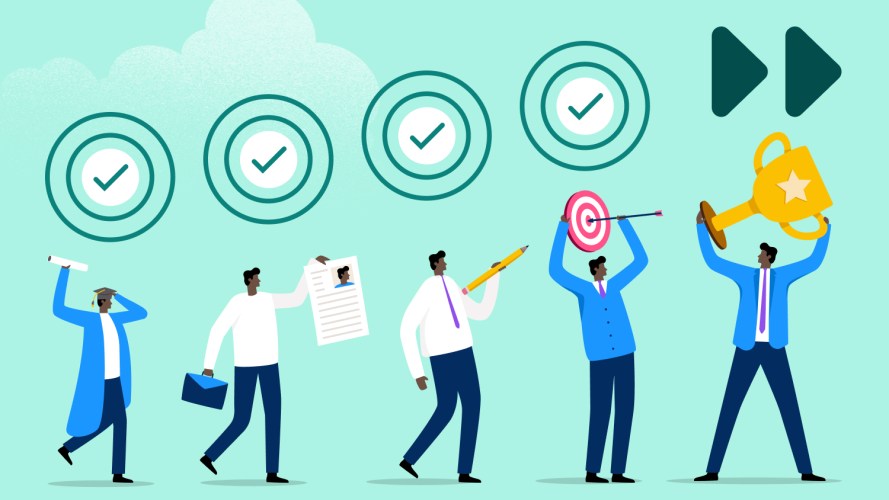3 Ways Generative AI Will Help Marketers Connect With Customers
3 min read

Each day, you sell something, often without even realizing it. When you coax your kids out of bed in the morning to go to school, recommend a favorite restaurant to a friend, or just convince yourself to go to the gym, you’re selling. So, whether you’re in sales or not, you’ve got sales experience, my friend.
My own sales experience has shown me that selling is not just about closing a deal. Read on to learn how to connect with people, recognize their needs, guide them toward a decision, and become better at what you do in the process.
We’re building the largest and most successful community of sales professionals, so you can learn, connect, and grow.

Sales experience describes an individual’s history of convincing others to make a purchase. For example, have you worked in a restaurant? That’s sales. Ever gone door to door asking neighbors to buy Girl Scout Cookies? Sales.
Sales experience can also include convincing someone to invest in you or take action. For example, have you gone to a job interview and talked up your qualities and why they should hire you? That’s also sales.
As I showcase below, sales experience is not just about getting more deals under your belt. It’s about honing specific soft and hard skills that make closing deals easier, regardless of the industry you’re working in.
Whether you’re just starting your career or coming to sales from another industry, you’ll want to decide what type of sales role your experience is best suited for. Let’s look at this in the context of business-to-business (B2B) and business-to-consumer (B2C) sales:
Regardless of which type of sales you pursue, it’s helpful to develop a versatile skill set that can adapt to varying sales environments. For instance, soft skills like effective communication, empathetic listening, and adaptability will serve you well no matter what you sell. These skills help you become a dynamic salesperson, able to successfully pivot between different sales scenarios and industries.
Sales experience gives you the ability to understand pain points, capture and keep attention, and get others to take action; in the case of reps, sales experience makes it easier to get prospects to buy. Over years of selling, you develop authority, confidence, negotiation tactics, the ability to overcome obstacles like objections, and other important skills that increase your chances of success.
Simply put, the more sales experience you have, the more attractive you become to potential employers and the more likely you are to excel in the field.
The benefits of having prior sales experience go beyond the obvious (like making more money). Let’s walk through two that are top of mind for me:
With sales experience comes the ability to learn how to read people and ask the right questions. Here’s an example:
Rather than waste your time on specs and features that don’t address their immediate challenges, you’ve listened to this prospect. You’ve shown them that you understand their needs, and offered a solution that could make a difference for them. And just like that, you’ve gained sales experience you can use in the future!
Learning how to negotiate a deal while building positive relationships is another important skill that comes with experience. Here’s what this might look like in practice:
People appreciate when you are understanding and flexible. If you’re able to negotiate a deal on the spot, with the potential to upsell in the future, it’s a win-win for everyone. But new reps, eager to close, don’t always see that; sales experience opens the door to these kinds of solutions.

3 min read

6 min read
By now you’re probably thinking, “Great, but how do I get this experience?” Here are some approaches that I’ve seen lead to successful sales careers:
Internships and entry-level positions are classic ways to dip your toes in the industry and see if it’s for you. If you’re interested in B2B sales, roles like sales intern, business development representative (BDR)/sales development representative (SDR), and account coordinator/junior account executive are likely good starter positions. For B2C experience, a job like retail sales associate will give you hands-on experience with customer interactions, product demonstrations, and understanding consumer behavior. Online job portals like LinkedIn, Indeed, and Glassdoor, company websites, career fairs, and networking events are all good places to look for your first role in sales.
Networking is a huge part of any sales job. It not only helps you connect with other industry professionals, but it’s also a good way to find potential customers. Attend sales industry events, join the Salesblazer community or one of the many sales-related groups on LinkedIn, and reach out to established sales professionals to connect. Finding a seasoned mentor or sales community can be a game-changer, accelerating your knowledge and opening doors to new opportunities.
If you’re transitioning from a different career path, remember that many skills are transferable to sales. As noted earlier, skills like effective communication, problem-solving, empathy, and adaptability are crucial in sales. For example, being adaptable to learning new sales tactics, processes, and even software can help you keep up with advancements and competitors in the field. Take time to hone these skills, either in role-playing practice with colleagues or via special training/courses (more on this below).
Register for training and enroll in certification programs to gain sales experience. Online training is convenient for those juggling other commitments, and certifications from reputable sources not only boost your knowledge but also add credibility to your resume. For instance, explore Trailhead’s training and certification programs to earn impressive credentials and skills for the future.
Remember, gaining sales experience is a continuous journey. There’s no clear finish line. Sales is a dynamic field, and staying on top of the latest trends, tools, and techniques can build your competence and confidence, whether you’re just starting your career or transitioning from another industry.
You probably already have some basic sales skills; as I mentioned up above, everyone is a bit of a salesperson, whether they know it or not. Let’s focus on two of the most important skills in a salesperson’s toolkit: active listening and empathy.
This goes beyond just hearing what a customer says. It’s about understanding their needs, concerns, and motivations. Harvard Business Review breaks down the process and even gives a cheat sheet for how to become a better listener.
Here are my takeaways:
This is a chance to walk in your customer’s shoes. It’s about understanding their situation, challenges, and emotions. When you approach sales interactions with empathy, you’re not just selling a product or service. You’re also providing a solution that validates and addresses their needs.
Here are three tips to help you connect with your customers on a deeper level:
These are both important to building rapport and trust with customers. Trust is the foundation of long-term business relationships. It can turn a one-time buyer into a loyal customer.
I’ve always believed that the key to excelling in sales is a combination of one’s personal and professional experience and their unique strengths. Let me explain.
I once coached a woman who came to sales from a job running educational programs for underrepresented minorities. Despite having no formal sales experience, her professional background and extensive network of contacts made her an asset to the team; she was gifted at listening, empathizing, and connecting.
She was hired as a business development manager for an educational startup, and I coached her for just 90 days before she assumed her role as a one-person department. In no time, she was driving multimillion-dollar revenues and was quickly promoted to head of sales.
Like others I’ve worked with, she excelled because she understood that her experience was her superpower. Whether you’re coming from a different industry or think your skill set is unrelated, there’s a place for you in sales.
It’s about growing three things: your industry knowledge, your network, and your skill set. This woman already had industry knowledge and a network. I helped coach her to use her skills in a way that made sense for selling for a startup, and she found success.
Remember, sales is not just about selling a product or service. It’s also about solving problems, building relationships, and making connections. Some of the best salespeople I’ve ever worked with have come from other backgrounds. Regardless of your training or past work experience, if you can learn to build trust with your customers and provide the solutions they need, you can build a career in sales.
Get the Sales Productivity Workbook and avoid pitfalls like bloated tech stacks and approval bottlenecks.




Get the latest articles in your inbox.